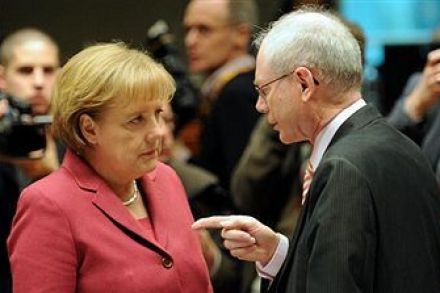The Euro is so great – let’s have two of them
European leaders have now agreed to bail out Greece in a coordinated affair, involving the IMF and bilateral assistance. The Times has written this up as a grab for more centralisation of policy-making by European Council President Herman Van Rompuy, but even the Tories know that’s not true, as judge by William Hague’s calm remarks. Trying to understand the problems of the euro has sent me back to my undergraduate economic textbooks and Robert Mundell’s work on optimum currency areas. As Spectator readers (many of whom are bankers) will know, the US economist theorised that a group of countries will benefit from a common currency like the euro if three








